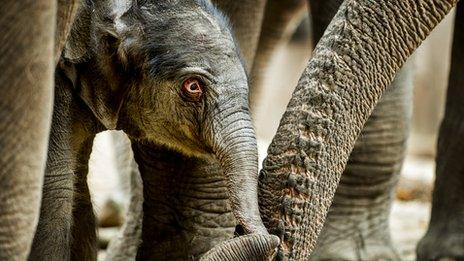Cruel trade in Asian elephants threatens survival - report
- Published
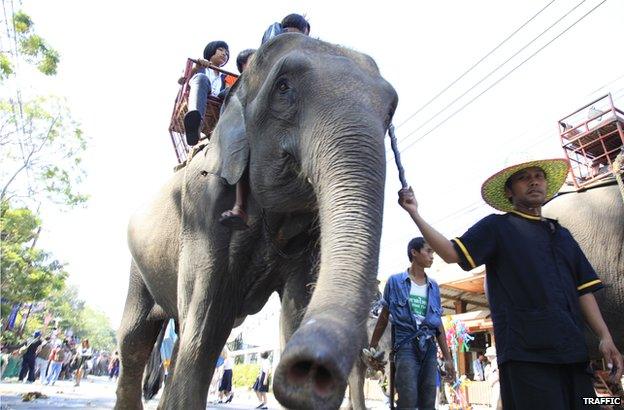
Younger elephants are popular with tourists at trekking camps in Thailand
Wild elephants are being held in horrific conditions in Myanmar by smugglers looking to resume a lucrative trade, a report says.
It claims the animals, mainly calves, are being brutally treated as they are "tamed" for tourist camps in Thailand.
Campaigners Traffic fear a resurgence in smuggling could seriously threaten the elephant's survival in Myanmar, also known as Burma.
They are calling on the Thai government to urgently tighten trafficking laws.
The study compiled by the wildlife monitoring network says that up to 81 live elephants were illegally captured for sale into the Thai tourist industry between 2011 and 2013.
The animals are mainly used to entertain foreign and domestic tourists at trekking camps.
As visitors prefer younger elephants, the value of calves has soared. The current market value is around $33,000 (£19,000) for a healthy specimen.
'Porous' borders
A clampdown by the Thai authorities in 2012 has succeeded in curbing much of the live trade from Myanmar.
However, according to Traffic, wild elephants continue to be trapped as smugglers believe the crackdown will end.
"We have information that dealers on the Myanmar side of the border are holding elephants, waiting for enforcement vigilance to be relaxed," said Dr Chris Shepherd from Traffic.
"Wildlife in Myanmar is being completely hammered, by habitat loss but also by the trade. Borders are extremely porous, wildlife is being taken across all the time."
The methods used to capture and train the elephants are particularly cruel.
Domesticated animals are used to herd wild ones into pit traps, where the older members are often shot. The younger elephants are then taken to the Thai-Myanmar border area where they are "broken in".
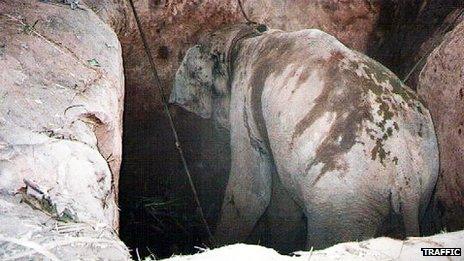
Pit traps are used to capture young calves in Myanmar
"They are put in small log boxes and just beaten into submission," said Dr Shepherd.
"They are a bit like a light switch - you take a wild elephant and beat it long enough and suddenly the switch goes off and you have a tame elephant.
"The welfare implications are horrendous - it is a cruel business."
'Laundered' elephants
Traffic and other campaigners want to see a toughening of the laws in Thailand. If an animal is captured at the border it can be seized.
However, if the animal gets into the country there are significant loopholes. Elephants don't have to be registered until they are eight years old, creating an opportunity for these smuggled calves to be "laundered" into the domestic population.
"Elephant populations are being depleted all over South East Asia," said Dr Shepherd.
"By logging, being poached for their ivory and captured for trade - if you add up all these pressures, any off-take at all has a conservation impact."
Political turmoil in Thailand over the past two years hasn't helped the drive to strengthen the laws in the country.
Thailand made significant efforts to ban a legal trade in ivory ahead of a meeting of the Convention on the International Trade in Endangered Species (Cites) last year.
There are worries that while laws exist on the statute books, they are not always enforced.
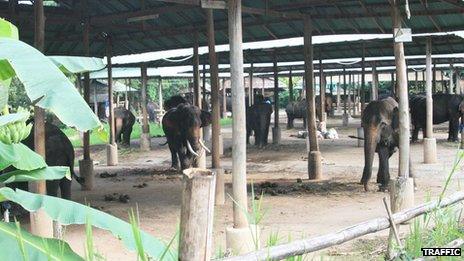
Elephants being held at a camp near the border between Myanmar and Thailand
"They clamped down and seized elephants but no-one was prosecuted," said Joanna Cary-Elwes from the charity Elephant Family.
"Their heart is in the right place but there's absolutely no deterrent to criminals - it is low risk and very high profit."
She believes that tourists need greater awareness of the smuggling situation, especially at trekking facilities.
"This is a UK-relevant issue - we have a million people flocking to Thailand every year. Most don't realise when they are posing next to a cute baby elephant what that animal has had to endure to be in a camp."
The campaigners are hoping that a meeting of Cites in Switzerland next week will increase pressure on both Thailand and Myanmar to act.
Follow Matt on Twitter @mattmcgrathbbc, external.
- Published13 June 2014
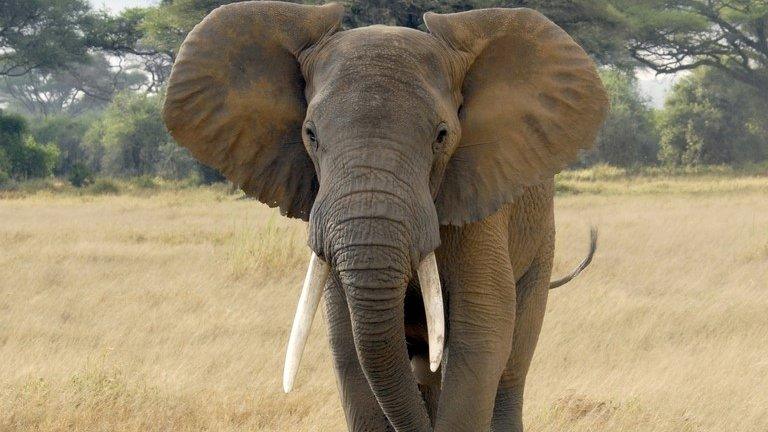
- Published2 July 2014
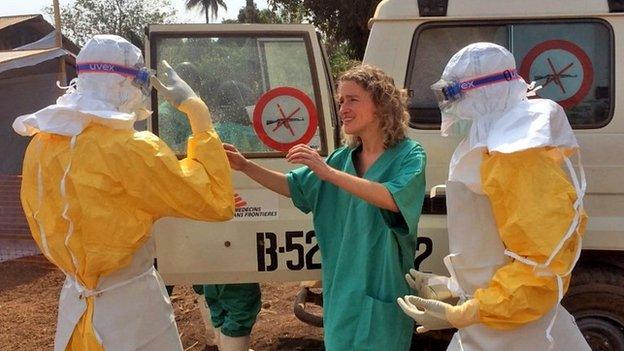
- Published3 March 2013
